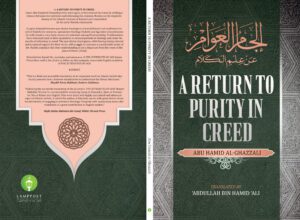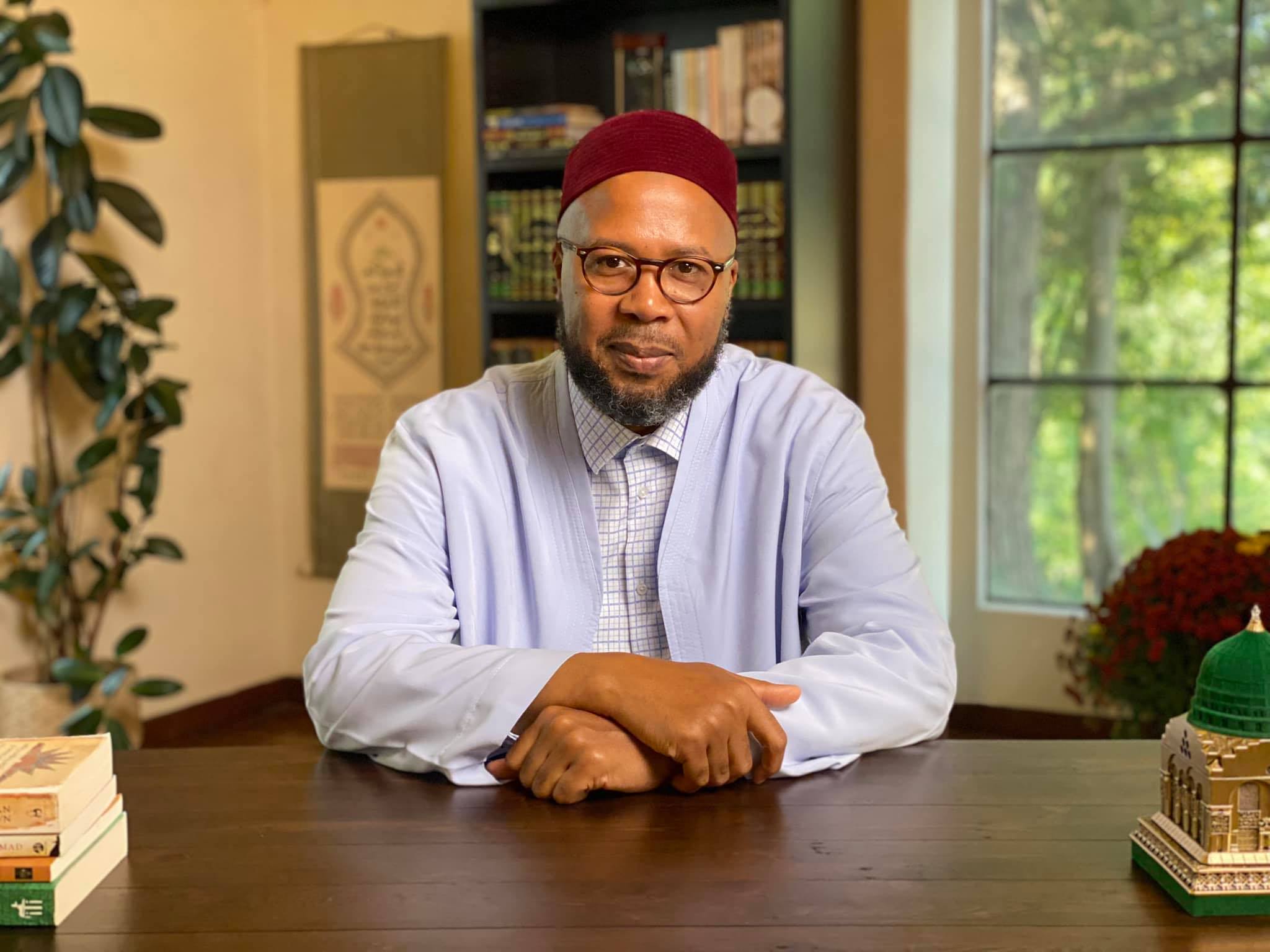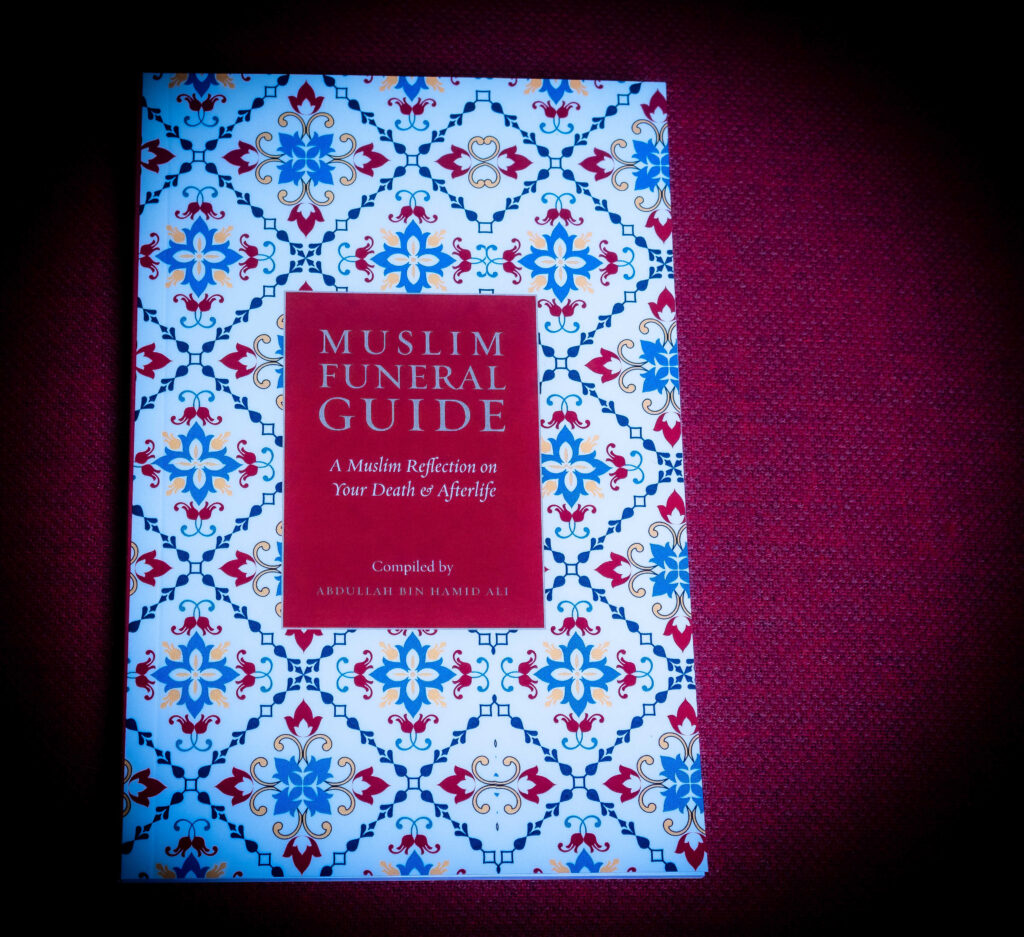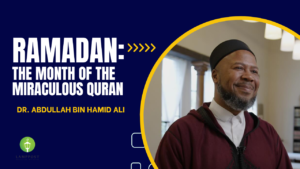No products in the cart.

‘A Return to Purity in Creed’: The Last Work of Imam Abu Hamid al-Ghazzali
The Lamppost Education Initiative is pleased to present this special

“And who does more wrong than he who prevents the mosques from God’s mention and strives toward their ruin?” (Q 2:114)
Al-Qur'an Tweet
Denying someone entry to the masjid without a valid excuse is unlawful, sinful, and unethical. There is no basis presently to bar Muslims, unvaccinated or vaccinated, from entering the Haram nor any other masjid on the planet.
Dr. Abdullah bin Hamid Ali Tweet

New From Lamppost:
‘Muslim Funeral Guide’ Muslim Reflection on Your Death and Afterlife. Available Now.
For details click the link below
While this may sound like a reasonable consideration, one must reflect deeply because therein lies a remarkable contradiction: The masjid is a place where people come to pray, meditate, and learn. Most importantly, one comes to engage in things which will increase one’s faith and trust in Allah. Many speakers will reinforce and repeat how one should remember that Allah is the provider and sustainer of all. So, he/she should never lose faith in His promise to take care of them when in need. If this is the message endorsed by masjid boards, one would assume that it is a message they have digested and recall when they make decisions about the viability of the masjid. To put it bluntly, how fit is any board or an individual member to manage the finances and donor relations of a masjid, if they fear losing the contributions of a key donor who attaches ideological strings to his donations? Shouldn’t those board members ignore conditions imposed upon them by such unscrupulous people and find alternate sources of income for the masjid? Should they not place their trust in Allah that He will provide for them from unsuspecting ways if they remain devoted to Him? “And whoever keeps his duty to God, He will make a way out for him and provide from him from where he does not expect” (Q 56:3)
Do You Need A Religious Exemption From Forced Vaccination? Is there a basis in Islam for such an exemption?
Click the link below for more information
The truth is that the masjid belongs to Allah. “And the mosques belong to God. So, do not call on anyone along with God” (Q 58:18). This means no one person nor group has the authority to determine who can and cannot enter it, besides those who Allah has already barred from it (drunkards, menstruating women, men in major ritual impurity, etc.). Denying someone entry to the masjid without a valid excuse is unlawful, sinful, and unethical. There is no basis presently to bar Muslims, unvaccinated or vaccinated, from entering the Haram nor any other masjid on the planet. The reason is that the current vaccines being imposed upon the population provide only—by God’s will—limited protection to the inoculated person. That’s as long as He does not will it to cause them harm. Therefore, preventing Muslims from entering mosques is an injustice. And making entry contingent upon vaccination status is pointless. “And who does more wrong than he who prevents the mosques from God’s mention and strives toward their ruin?” (Q 2:114)
He holds a Ph.D. in Cultural and Historical Studies in Religion (2016) and an M.A. in Ethics and Social Theory (2012) from the Graduate Theological Union. He obtained his B.A. (ijaza ‘ulya) in Islamic Law  (Shariah) from the prestigious Al-Qarawiyin University of Fes, Morocco in 2001. He served as full time Islamic chaplain at the State Correctional Institute of Chester, PA from 2002-2007, and is the founding director of the Lamppost Education Initiative. He currently serves as an Associate Professor of Islamic law and Prophetic Tradition at Zaytuna College in Berkeley, California. His research interests include the interconnection between law and identity formation, comparative Islamic law, and Islam’s role in the modern world.
(Shariah) from the prestigious Al-Qarawiyin University of Fes, Morocco in 2001. He served as full time Islamic chaplain at the State Correctional Institute of Chester, PA from 2002-2007, and is the founding director of the Lamppost Education Initiative. He currently serves as an Associate Professor of Islamic law and Prophetic Tradition at Zaytuna College in Berkeley, California. His research interests include the interconnection between law and identity formation, comparative Islamic law, and Islam’s role in the modern world.
Click HERE to see more articles, videos, and more from Dr. Abdullah Ali

The Lamppost Education Initiative is pleased to present this special

Dr. Umar Johnson is known for his controversial and perceived

**Faith and Society** is an engaging new series where Dr.

“Ramadan is celebrated because it is a commemoration. of the